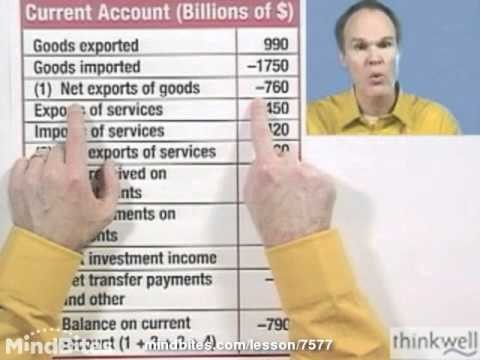Balance of Payments Jamaicans have a culture of dependence
Post on: 15 Август, 2015 No Comment

Today, we continue a new series, The Briefing, with Dr André Haughton.
It explains and discusses various issues, including challenges facing
the economy.
What is the Balance of Payments?
The balance of payments (BOP) records the monetary transactions between Jamaica and the rest of the world for a specific period of time; monthly, quarterly or annually. Every year, for example, Jamaicans engage in all sorts of transactions with foreigners buying (importing) and selling (exporting) goods and services; gifts, cars, clothes, studio equipment etc. Jamaicans also provide and/or receive loans from foreigners, undertake investment and/or receive investments from abroad as well. These monetary transactions make up the BOP and can be broken down in three categories; (1) the current account (2) the capital and financial account and (3) the official reserve-settlement balance.
What are the differences in those three?
The current account records the buying and selling of goods and services between Jamaica and the rest of the world. For example, when Jamaicans purchase goods from China it is recorded as a negative to the balance of payments since it is an outflow of foreign currency. On the other hand, when Jamaicans sell goods to foreigners it is recorded as a plus to current account since it represents an inflow of foreign currency to the island. The capital and financial accounts deal with direct investments, capital investments, portfolio investments and any other investment activities between countries. This account records how many financial assets Jamaicans invest in abroad versus how much of Jamaica’s local investments people abroad invest in. When a Jamaican buys shares in a company abroad it represents a negative to the capital account, while if a foreigner invest in a local Jamaican company it is recorded as a plus to the capital and financial account. The reserve settlement balance basically keeps record of transactions involving the country’s international assets such as gold and foreign exchange reserves.
What’s the relevance?
Countries with a surplus on their balance of payments such as China, Singapore and Trinidad and Tobago are accumulating wealth, while countries with consistent balance of payment deficits such as Jamaica and Greece, are accumulating debt over time. Last year, US$5 billion worth of goods were imported to Jamaica and only US$1.6 billion worth of goods were exported. The country thereby started the year with a huge current account deficit and slow inflow of foreign currency relative to outflow. Conversely, Trinidad and Tobago, for example, exported US$13 billion and imported approximately US$ 9.6 billion worth of goods, starting the year with a current account surplus. Jamaica’s current account deficit was US$377 million for the period April to June, the second quarter of this year. Subsequently, the country continues to import more, and although the official figures for the entire year are not yet published, the deficit is not expected to decline.
Why does Jamaica import so much?

Every country that does not produce oil must import it. Currently, 93.5 per cent of Jamaica’s electricity consumption is produced from fossil fuel (oil) which must be imported; 1.8 per cent from hydroelectric plants and approximately 4.8 per cent from other renewable sources (windmill, solar etc.). Notwithstanding this, Jamaica imports consumption goods because (1) the country is not producing enough to meet local demand for some products; (2) Jamaicans have a culture of dependence on the demand for foreign goods. Jamaicans essentially have inelastic demand for foreign goods. This means, no matter how prices increase, the demand remain relatively the same. This culture, if continued, will increase the balance of payment deficit and increase Jamaica’s debt burden over time.
Is this the right approach?
Generally, every country imports, however, exports are more important to earn revenue and foreign currency for a country. Singapore for example, has a debt-to-GDP ratio that is 118.2 per cent, very similar to that of Jamaica, very high compared to the rest of the world. However, Singapore operates a very efficient and highly productive economy relative to Jamaica. Their economy is zero per cent agriculture, 19.6 per cent industry and 80.4 per cent services. The country depends on exports, primarily electronics, informational technology products and pharmaceuticals. Initially, Singapore’s manufacturing sector was predominantly labour-intensive. They gradually moved into value-added products and the provision of high-valued services to the international market. Unlike Jamaica, Singapore is a corruption-free country, which is a major plus in the country’s development efforts. As a result, average earnings per person per annum (GDP per capita), is US$59,700 compared to Jamaica at just US$8,900 per year. Singapore benefits from comparative advantage as the country imports most of its workers to balance its production processes.
What is comparative advantage?
Comparative advantage arises when a country can produce a good and/or service at a lower opportunity costs than another country. Even if one country is more efficient at producing all the goods, since one country cannot possibly produce everything — not even China — it leaves room for other countries to produce what remains. A country will always have a comparative advantage in the production of indigenous goods and services. For example, Brazil has a comparative advantage in the production of footballers and Jamaica has a comparative advantage in the production of sprinters. Jamaica must research these goods and services where there is comparative advantage and capitalise on the production of these for export.














